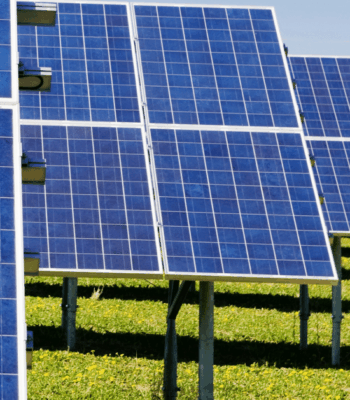Retailers are on the hook to account for the greenhouse gas (GHG) emissions used by the products they sell, even after they’re sold. Products like appliances, electronics, and outdoor power equipment directly use electricity or fuel to operate, generating emissions long after they leave the retail store.
While helpful usage assumptions are available for products that are U.S. Environmental Protection Agency (EPA) certified, there are gaps in product coverage that make it hard for retailers to measure, compare, and communicate their greenhouse gas emissions in a consistent manner. Today, we announced a strategic partnership with the Retail Industry Leaders Association (RILA) to create the Direct-Use Product Emissions Database (DPED), a new tool for scope 3, Category 11 Use of Sold Products emissions reporting that will help fill current gaps in reporting and align how retailers account for their scope 3 emissions.
This tool will enable consistent and comparable scope 3 emissions reporting at a product category level to start, with the long-term goal of being a self-sustaining tool with data down to an individual product level. The DPED will be published in the first half of 2024, in time for retailers and other industries to leverage the initial database for their next round of emissions reporting or other use cases.
Read the full announcement here.
As founding supporters of the initiative, Lowe’s and Target were among the nine RILA members who identified these scope 3, Category 11 challenges and opportunities in today’s reporting environment and are collaborating with industry peers and Optera on developing the tool.
“As Lowe’s worked to measure our Use of Sold Product data and offer more eco-friendly products to our customers, we quickly recognized the value of collaborating with other retailers,” said Chris Cassell, Lowe’s vice president, corporate sustainability. “By leveraging this new solution, as an industry, we have a chance to enhance accuracy and comparability to drive better decision-making and accelerate our progress in reducing value chain emissions.”
“Target’s net zero ambition extends to reducing emissions across our value chain, and in turn supporting our suppliers in their decarbonization efforts,” said Agata Ramallo Garcia, VP of Sustainability at Target. “We’re proud to support RILA and Optera’s efforts to provide the information we and our partners need to better understand our emissions impact and identify opportunities for continuous improvement.”
“Retailers are natural competitors; but in certain cases, they recognize the value in collaborating, with the sole goal of moving the entire industry forward. With a shared commitment to mitigating climate risks, this is one of those instances,” said RILA Vice President, CSR Erin Hiatt. “The lack of consistent and comparable product use emissions data has been a longstanding challenge, and we’re excited to leverage Optera’s expertise in this field to develop a database solution to a key portion of this challenge.”
“For many retailers, the bulk of their greenhouse gas emissions come from consumers using the products they sell. From lawnmowers to kitchen appliances, retailers need a consistent way to evaluate the emissions impact of their products,” explained Tim Weiss, CEO of Optera. “We are thrilled to partner with RILA and the leading retailers on the advisory team to bring greater consistency and accountability to scope 3 accounting that will benefit and be accessible to not just RILA members and the retail industry, but any end user for whom this data gap is a challenge.”


